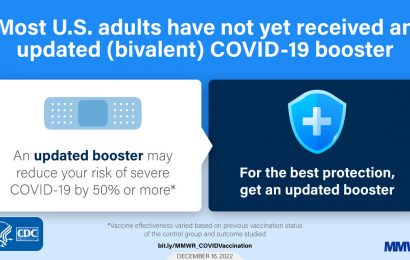In a brief this week, scientists from the National Institutes of Health’s “All of Us” Research Program found that price and understanding of mechanics could prevent individuals from using digital health devices such as fitness trackers.
The research letter, published Monday in npj digital medicine, drew on surveys of patients at six federally qualified health centers to determine interest in and barriers to having a fitness tracker.
“Our findings suggest that widespread adoption and use of digital health devices are possible across diverse communities, but would require a high-touch approach, including educational materials and public or private financial investment in devices,” wrote researchers.
WHY IT MATTERS
As the study team noted, while data from wearable devices such as fitness trackers is increasingly used in clinical and research settings, inconsistent access to digital health technologies means such trials can lack participant diversity.
“Improved access to digital infrastructure and devices in diverse communities is needed to avoid the risk of digital technologies becoming another social determinant of health,” wrote researchers.
The study team explained that it launched a “bring-your-own-data” initiative enabling participants to donate their Fitbit data to research.
However, said the team, “when All of Us Fitbit participant demographics were compared to all program participants, a reduction in diversity in race and socioeconomic status was noted.”
In order to investigate those gaps, six FQHCs that participate in the All of Us consortium conducted a survey to collect patients’ demographic information, interest in having a fitness tracker, and other factors potentially associated with this interest.
Of the 1,007 adults surveyed, 39% identified as Hispanic, 36% as non-Hispanic Black or African American, and 15% as non-Hispanic white, said the team.
Almost three-quarters identified as cisgender women; 45% had completed high school and participants were evenly divided across age groups.
Of the participants, 21% said they owned a fitness tracker already.
More than half of the participants (58%) said they would like a fitness tracker; 20% said “no,” and 23% did not answer.
Those interested in a fitness tracker were more likely to be between the ages of 46 and 65, and to identify as Black.
“Participants who had a smartphone at the time of the survey and knew what a fitness tracker was before the survey were also more likely to want a fitness tracker,” said the researchers.
Hindering factors to having and using a fitness tracker included awareness of the technology and cost. Language may also be a barrier.
“Consideration of cultural nuances are also important, for example with the terminology used to name these devices,” said researchers. “In the course of this study, we learned that many Spanish-speaking participants were concerned that these devices could be used to track their movements, because of the word ‘trackers.'”
As wearables evolve to monitor more specific health concerns, the brief authors noted that inclusive use of them in research and clinical practice will likely require strategic planning.
“There is a risk of increasing health disparities through noninclusion in research and clinical care using wearables and other digital health devices; the diverse participants in this study indicated interest in fitness trackers, but barriers such as cost and education exist,” they said.
“Future research to understand potential health disparities and inequity could investigate other evidence-based digital health solutions and real-world data beyond fitness trackers,” they continued.
THE LARGER TREND
Wearables have become a more dominant force in monitoring individuals’ day-to-day health, beyond the discrete metrics of tracking steps or heart rate.
For instance, a 2019 study found that an accelerometer device allowed researchers to rank the mortality risk of older adults with more accuracy than traditional predictors such as history of cancer or heart disease.
The year before, speakers at the Connected Health Conference noted the role wearable devices could play in precision medicine.
However, beyond access, evidence has also emerged of bias in the technology.
A 2022 review of 10 previously published studies suggested that the technology often used in smartwatches and other devices may be less accurate for people with darker skin.
ON THE RECORD
“As the use of digital technology expands into healthcare, careful consideration is required to ensure that existing health equity gaps are not exacerbated and additional health equity gaps are not created,” wrote the research team.
Kat Jercich is senior editor of Healthcare IT News.
Twitter: @kjercich
Email: [email protected]
Healthcare IT News is a HIMSS Media publication.
Source: Read Full Article


